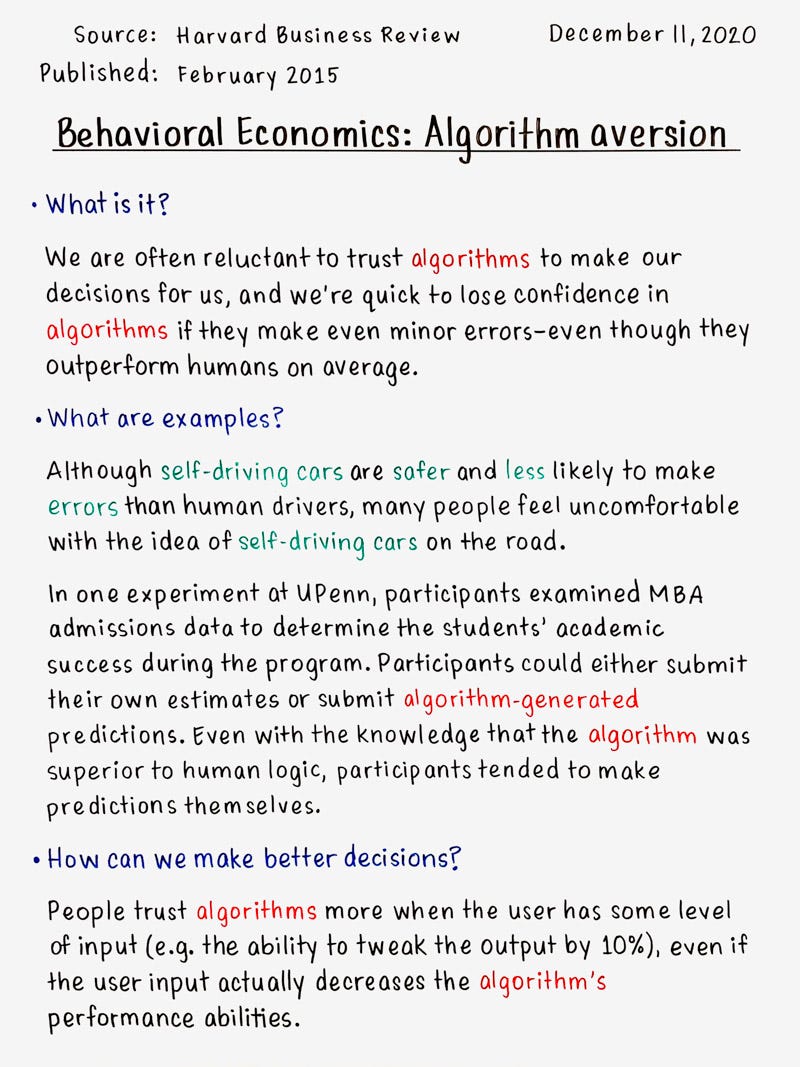December 11: Algorithm aversion (Behavioral Economics)
People trust algorithms more when the user has some level of input – even if the user input actually decreases the algorithm’s performance abilities.
Source: Harvard Business Review
Published: February 2015
Behavioral Economics: Algorithm aversion
What is it?
We are often reluctant to trust algorithms to make our decisions for us, and we’re quick to lose confidence in algorithms if they make even minor errors–even though they outperform humans on average.
What are examples?
Although self-driving cars are safer and less likely to make errors than human drivers, many people feel uncomfortable with the idea of self-driving cars on the road.
In one experiment at UPenn, participants examined MBA admissions data to determine the students’ academic success during the program. Participants could either submit their own estimates or submit algorithm-generated predictions. Even with the knowledge that the algorithm was superior to human logic, participants tended to make predictions themselves.
How can we make better decisions?
People trust algorithms more when the user has some level of input (e.g. the ability to tweak the output by 10%), even if the user input actually decreases the algorithm’s performance abilities.
------------
Did you appreciate the fact today?


